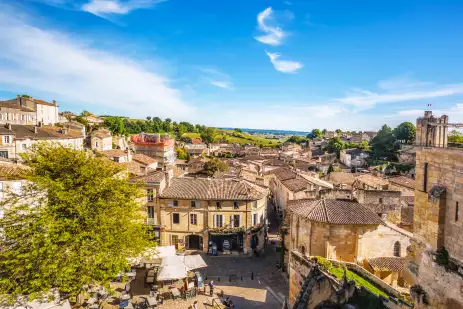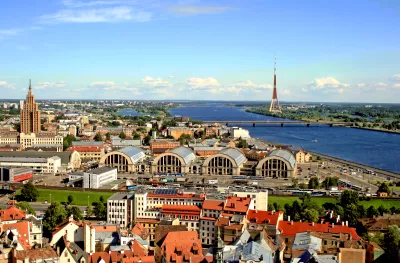Visiting France: Culture, Etiquette, Currency and More Travel Tips

From the grand boulevards of Paris to the vineyard-covered hills of Bordeaux and the Alpine villages steeped in tradition, France offers a rich tapestry of culture, history, and cuisine.
Planning a trip to France? To truly savour the experience, it helps to understand local etiquette, customs, currency, and how things work daily. Here's everything you need to know to get started.
What do British citizens need to enter France?
If you're a UK citizen, you do not need a visa for short stays in France. You can travel for up to 90 days in any 180-day period for tourism or business.
Your passport must be:
- Valid for at least 3 months after the date you plan to leave France
- Issued within the last 10 years
Always check the UK government travel advice website before you go for up-to-date entry requirements and travel alerts.
What is the currency in France?
The currency in France is the Euro (€), if you're given the option to pay in GDP or EUR, always choose the euro as it usually results in a better exchange rate. Cards are widely accepted, especially Visa and Mastercard. However, it’s a good idea to carry some cash for small purchases, market stalls, and tipping. If you're caught short, distributeurs (ATMs) are easily found in towns and cities.

What are the key phrases to know when visiting France?
While 39% of French people claim to be fluent in English - and many know a little - we always recommend that you have a few key phrases in your backpack when you travel. It empowers you to explore new destinations with confidence, connect more meaningfully with locals, seek directions when exploring independently, choose the right dishes for you, and engage in delightful conversations. Even without fluency, your efforts reflect a profound appreciation for the French culture, forging connections that enrich your adventure with genuine moments.
Basic French greetings:
In French culture, saying 'hello' is polite and expected when starting a social interaction - whether you are talking to someone on the street, a waiter or a shop assistant - skipping saying hello is perceived as rude. So make sure you memorise these!
- Bonjour: (bohn-ZHOOR) - Hello/Good day. Used until about 6 PM.
- Bonsoir: (bohn-SWAHR) - Good evening. Used after 6 PM.
- Au revoir: (oh-rev-WAHR) - Goodbye.
- Salut: (sah-LOO) - Informal hello/goodbye
Basic manners
- S'il vous plaît: (SEEL voo PLAY) - Please.
- Merci: (MER-see) - Thank you.
- De rien: (duh-ree-AN) - You're welcome
Communication:
- Je ne parle pas français: (zhe nuh parl PAH fran-SA) - I don't speak French.
- Parlez-vous anglais? (par-LAY voo ahn-GLAY) - Do you speak English?
- Je ne comprends pas: (zhe nuh cohm-PRAWN pah) - I don't understand
- Pourriez-vous répéter, s'il vous plaît? (poo-ree-ay voo reh-peh-TEH, seel voo play) - Could you repeat that please?
- Pourriez-vous parler plus lentement? (poo-ree-ay voo parl-ay plu lont-mon) - Could you speak more slowly please?
Practical phrases:
- Où est...? (OO-eh) - Where is...?.
- Combien ça coûte? (cohm-BYAN sah KOOT) - How much does it cost?.
- Je voudrais... (zhe voo-DRAY) - I would like...
- Avez-vous...? (ah-VAY voo) - Do you have...?.
- Comment allez-vous? (cohm-AHN ah-LAY voo) - How are you?
What are the dos and don'ts in France?
The French place a strong emphasis on manners and politeness. They value a sense of formality and respect (they often prefer comfortable silence over constant chitchat). A little courtesy and cultural awareness go a long way - here are the unspoken cultural expectations valued by locals.
DO:
- Say “Bonjour” or “Bonsoir” when entering a shop or restaurant
- Learn a few basic French phrases – even if your accent isn’t perfect, effort is appreciated
- Dress smartly when dining out or visiting cultural sites
- Respect personal space, especially in queues and on public transport
- Use formal titles like “Monsieur” or “Madame” when speaking to people you don’t know
- Be punctual, especially for formal events, such as restaurant reservations
- Wait for everyone to be served before eating and keep your hands (but not your elbows) on the table
DON’T:
- Talk loudly in public – especially on trains or in restaurants
- Assume everyone speaks English – many do, but starting in French is more polite
- Touch produce at markets unless invited to do so
- Eat on public transport – it’s generally frowned upon
- Forget to greet and thank service staff – skipping basic politeness can come off as rude

Do you tip in France?
Gratuity varies between cultures, and many guests often ask, "Do you tip in France?". In France tipping isn't obligatory, but it's seen as a nice way to say merci for great service. Here's how it works:
- Restaurants: service compris (service charge) is usually included in the bill, but leaving small change or rounding up is appreciated. For excellent service, you can tip an extra 5–10%.
- Cafés: Rounding up a euro or two is a polite gesture.
- Taxis: Not required, but rounding up to the nearest euro or adding 5% is common.
- Hotels: Tip porters €1–2 per bag and housekeeping €1–2 per night for longer stays.
Transport tips: Finding your way through France
France has an excellent public transport network. Trains (especially high-speed TGVs) are a fast, comfortable way to travel between cities. In urban areas, metros, trams, and buses are reliable and affordable.
- Tickets must be composté (validated) before boarding trains
- Use contactless cards or local apps like Bonjour RATP or Citymapper for metro navigation in cities like Paris
Driving? Be aware that:
- Toll roads are common and can be expensive
- You’ll need a UK sticker and headlight converters if bringing your own vehicle
- French driving laws differ from the UK—familiarise yourself before hitting the road




